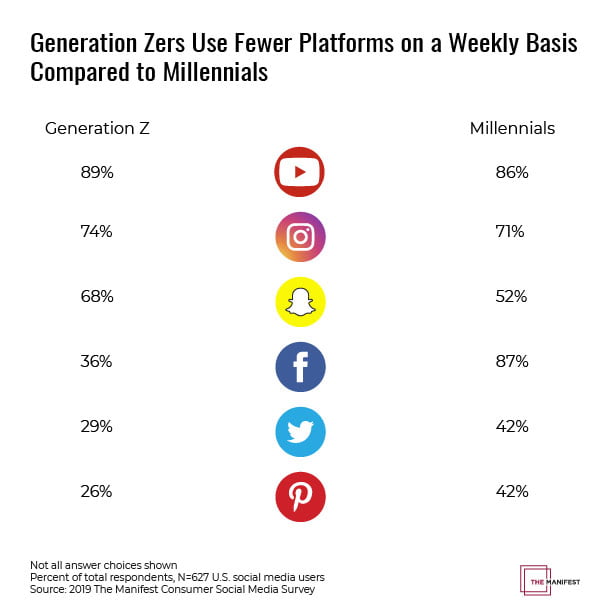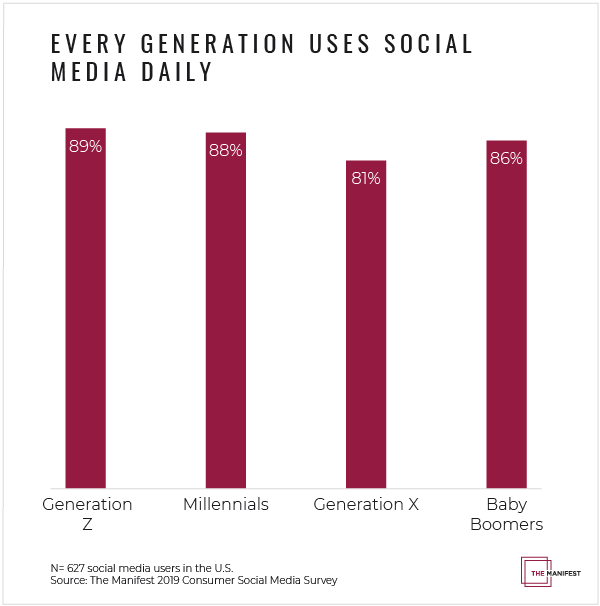
Introduction
Social media marketing (SMM) is a form of digital marketing that uses social media platforms such as Instagram, Facebook, Twitter, and YouTube to promote products, services, and brands. It involves creating content that is designed to engage an audience and build relationships with them.
Why Is Social Media Marketing Important?
Improves Brand Visibility
With the right strategies and tools, a brand can reach a much wider audience and create an online presence that is more visible than ever before.
Increases Customer Loyalty
SMM helps to build customer loyalty by creating a connection between a brand and its customers. This helps to create a sense of loyalty amongst customers and increases their loyalty to the brand.
Helps You Speak Directly to Your Audience
Through social media marketing, companies can build relationships with their customers, as well as interact with them in a more personal way.
This allows companies to understand their customers’ needs and wants and can help them tailor their marketing efforts accordingly.
Tracks Website Visits and Conversion
SMM is also a great way to track website visits and conversions. By tracking website visits and conversions, a company can determine which of its social media campaigns are working and which aren’t, allowing them to make more informed decisions about its future campaigns.
What Are The Benefits Of Social Media Marketing?
Reaches a Wider Audience
One of the key benefits of social media marketing is that it allows companies to reach a much wider audience than they would with traditional marketing techniques. Through SMM, a brand can reach potential customers who may not otherwise have been exposed to the company’s products or services. This can help to increase the company’s customer base and can thus result in increased revenue.
Enhances Brand Reputation
SMM also helps to enhance a brand’s reputation. By engaging with customers and responding to their feedback, a brand can create a strong, positive reputation that can help to build customer loyalty.
Gives Your Brand a Voice
Finally, social media marketing gives brands a voice. Through social media platforms, brands can communicate directly with their target audience and give them a better understanding of the company’s mission and values.
This can help to build a strong, trusting relationship between the brand and its customers.
How Do Brands Do Social Media Marketing?
Developing Strategies and Plans
The first step in an effective SMM campaign is to develop strategies and plans. This involves determining the target audience, identifying the right social media platforms and tools, and establishing a clear plan of action.
Knowing Target Platforms
Once the target audience has been determined, the next step is to determine the platforms and tools that will be used to reach the audience.
This requires a thorough understanding of the target audience and the platforms that are best suited to reach them. Marketers then make an informed decision as per the insights received.
Choosing Tools and Software
Choosing the right tools and software is essential for a successful SMM campaign. There are many different tools available, and each one can help to make the campaign more efficient and effective.
Some of the most popular tools and software include social media scheduling software, automation tools, monitoring platforms, and analytics tools.
How To Create A Social Media Marketing Strategy?
A social media marketing strategy is an important part of any online marketing plan. It refers to the act of engaging in various social media networks, such as Twitter, Instagram, LinkedIn, and Facebook, to promote a brand or product. A marketing strategy can involve various activities, such as sharing content, engaging with followers, and developing relationships with influencers.
Define goals
A comprehensive social media strategy should help a business define its goals, target audience, and preferred social channels. The strategy should provide a framework for the content that should be shared in order to influence and engage with social media users effectively. This can be accomplished through careful planning to ensure that the right type of content and messaging is shared in the right medium, at the right time.
Selecting the appropriate channel
When creating a social media marketing plan, it is important to decide how to use each social network channel appropriately. For example, Twitter, Instagram, and Facebook all offer different opportunities for connecting with potential customers. This means that a business must decide which marketing channels will be the primary focus of the strategy and which will be more supplemental in their approach.
Create engaging social media posts
Content marketing is another important aspect of a social media strategy. This involves crafting engaging and informative pieces of content that can be shared across various social channels. Content marketing should strive to leave a lasting impression on social media users and can be divided into various different types such as short-form blog posts, unique images, or instructional videos. This can be combined with engaging conversations to allow a business to foster relationships with existing and potential customers.
Be active on social media networks
The most important factor when utilizing a social media strategy is growing and maintaining a social media presence. This involves establishing relationships with influencers in the industry, responding to inquiries and comments, and encouraging followers to re-share content. Doing this will not only boost the business’s following and reach, but can also help to increase brand loyalty.
For any business looking to capitalize on social media marketing efforts, developing an effective social media marketing strategy is essential. This involves determining the right type of content to share, which social channels to focus on, and how to grow and maintain a presence on each channel. With careful planning and dedication, a business can successfully engage its target audience and build strong relationships with its social media followers.
How Social Media Marketing Campaigns Vary As Per Audience And Platform.
A social media marketing campaign is an organized effort by businesses to promote their products or services through various social platforms like Facebook, Twitter, Instagram, LinkedIn, etc.
Knowing your target social media audience and what kind of content they respond best to is key when crafting a successful social media campaign strategy.
Audience Variations
Different generations have different interests, preferences, use social media differently, and often respond to different kinds of messages.
It’s important to be aware of these generational differences when crafting messages for each of your social media platforms.
Millennials (1981 – 2010)
This age group is often quick to adopt new technology and social media campaigns and responds best to campaigns that use humor, strong visuals, and videos.
Using popular memes and interactive content can also be successful when targeting younger generations.
Generation Z (1997-2010)
In comparison to millennials, Gen Z uses relatively new sites like TikTok, Snapchat, and Instagram more frequently. The graphic below shows how Generation Z and Millenials use social media.

Image source: The manifest
Gen Z uses TikTok 25% of the time on a daily basis, compared to Millennials who use it only 9% of the time.
Generation X (1965-1980)
Campaigns targeting this age group should focus on having a clear message, as well as conveying a sense of professionalism, authority, and credibility.
Understanding the platform and how to tailor your messages to different types of audiences will help you create a successful social media marketing campaign.

Image source: The manifest
Tools That Make Social Media Marketing Easier For You.
There are several types of social media management tools that make it easier for you to manage your social media accounts and schedule posts, including:
Social media listening tools
These tool lets you listen in on conversations about your brand or product. It can also help you identify influencers who are talking about it.
Scheduling tools
These tools allow users to schedule their posts, which can be done either manually or automatically based on the time of day or day of the week. You can even have a social media content calendar and have a plan in advance as to what content should be delivered on your social media channels. Facebook has an inbuilt tool for scheduling posts on Facebook and Instagram which is totally free.
Social analytics tools
These apps provide information about how well each post performed relative to others in terms of engagement rates (the number of times people liked it), shares/likes/comments, etc., along with other metrics such as impressions (a measure of how many times something has been displayed) and click-through rate (how many times someone actually clicked onto an item).
Hootsuite is a common example which contains all the above three tools.
Help Your Customers Become Your Social Media Followers.
Social media platforms may also be used as a tool for proactive consumer feedback on your company’s products and services. They will follow you if you pay attention to them, and you may as well earn some credit for it on your social media platforms.
Produce content that consumers will share on social media to aid a business in expanding its customer base and brand awareness.
You Should Track Website Visits, Conversions, And Sales.
After you’ve set up your social media accounts, it’s time to start tracking the performance of your campaigns. You should use Google Analytics, Facebook Insights, and Twitter Analytics to track website visits, conversions, and sales as well as other metrics like organic reach (how many people saw your post) or time spent on site.
You can also use a tool like Crazy Egg Analytics to measure how much time users spend with the page and what they do while they’re there—this will give you an idea of which parts of your website are performing best at attracting new visitors.
Conclusion
Social media marketing is a great way to reach out to your customers, build brand awareness and drive sales. You can use social media platforms to listen to what people are saying about your business.
These programs will allow you to reactively respond by creating content that people will share with their friends on their personal accounts so they can help spread the word about your company’s products or services.


